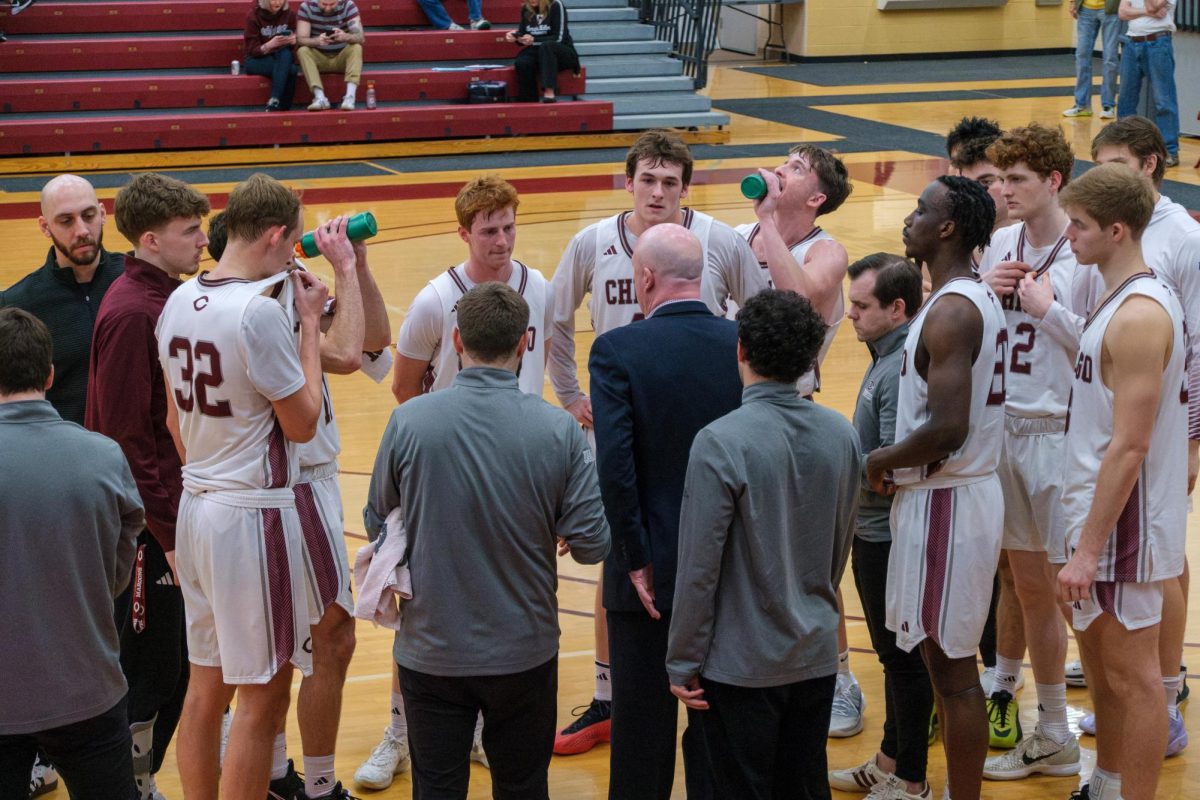Wheaton has several key advantages over the Maroons: they are larger, faster, and fitter. Technically, the teams are comparable, and the Maroons’ best players are better than their Wheaton counterparts by a considerable distance.
What did this imply for strategy? Defensively, the Maroons had to raid the opposition and limit their capacity to distribute the ball around the field. They had to run their socks off, cover for each other, and challenge for every ball. The exhaustion induced by such a defensive plan makes attacking very difficult; the midfielders are likely to be too tired to carry the ball any major distance, meaning that they have to play the ball up to the wide players and the strikers early. The onus is then on the offensive players to be ruthless in their finishing—chances will be few and far between, but when they arrive they must be taken.
The Maroons executed this plan admirably for the first 30 minutes. Tight defending, tireless running, and maximum concentration exposed Wheaton’s over-reliance on barging, rather than playing, its way past the opposition. The home side had only one decent effort on goal, while the Maroons fashioned a couple of great openings through outstanding third-year midfielder Jacqui De Leon.
Disaster struck, however, when Wheaton scrambled a lucky goal from a deflected cross. Two additional goals effectively sealed the match for an impressive Wheaton team before halftime. A combination of loss of concentration and the inevitable exhaustion meant that the Maroons could no longer effectively track their opponents’ runs; Wheaton moved the ball to its open players, outnumbered the defenders, and overwhelmed the Maroons’ goal. A gutsy second-half Chicago performance left the score looking a little harsh, but securing the victory was always going to be difficult for the Maroons once they conceded first.
Rest assured, if the teams had been comparable from an athletic perspective, the Maroons could have cantered to victory: Their attacking play was technically far more incisive, but they were frequently out-muscled and outrun by a Wheaton side that starved star third-year forward Renee Neuner of any service. Wheaton’s attacks consisted of exploiting its size and speed to get into space, and they knew that this would suffice deep into the game.
If the Maroons want to press home their slight technical advantage without pumping their players full of growth hormones, they should work on improving the good current fitness levels to something close to phenomenal. They also need to organize more fixtures where they actually have to break a sweat to win—this season has exposed an alarming disparity in quality between the good and not-so-good teams in the division. With a little more practice against teams that can approach their own quality, the Maroons will have every chance of claiming the championship next year.








